
 |
|
| ABOUT THE PROJECT | THE MEN | THE CONTEXT | THE MAP | EDUCATION | SUPPORT | CONTACT | SITE MAP | DONATE| |
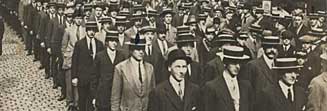 |
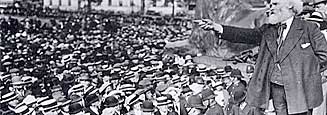 |
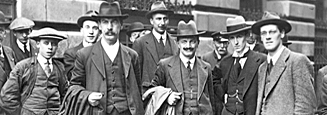 |
| Conscription How did it come about and what were the consequences? | more |
Anti War The peace movement in Britain throughout the 19th century and right up to 1914 had been active against war and preparations for war. | more soon |
No Conscription Felowship The NCF became the major group challenging the government's plans for conscription and later supported conscientious objectors throughout the country. | more |
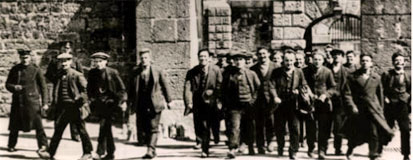 |
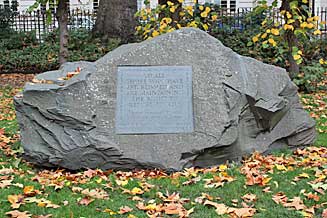 |
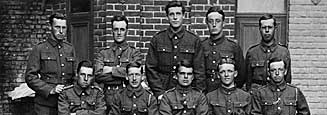 |
| Prison Prisons were especially grim and unhealthy places in the early part of the 20th century. Many COs who experienced them often subverted the regime and campaigned for prison reform after the war. | more |
Non-Combatant Corps The men of the Non-Combat Corp are barely visible in the CO story. More numerous than those in long term prison but often shunned by their fellow COs. |more |
|
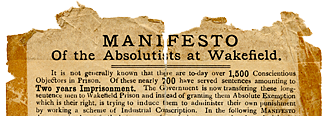 |
International Conscientious Objectors Day International Conscientious Objectors Day is marked around the world each year on 15 May. It was initiated in 1985, at a time when compulsory conscription was still commonplace in Europe. |more |
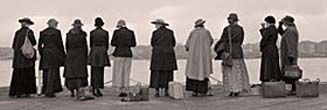 |
| Wakefield Experiment A short lived and failed government experiment that resulted from severe criticism of the conditions of absolutis COs in prison | more |
|
Women Women have always been part of the peace movement; many campaigned against the threat of war, the imposition of conscription and played a leading part in supporting conscientious objectors. |more |
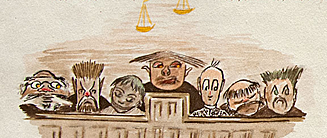 |
Motivation What made the men we call conscientious objectors resist, often at considerable cost, the call to war? |more |
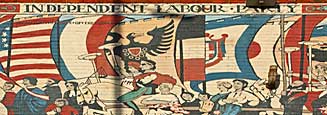 |
| Tribunals Ill equipped and often unwilling to understand that men could actually refuse to take part in lawfull killing, the Tribunals made a mockery of the law and disrupted the lives of thousands. | more |
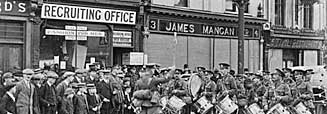 |
Independent Labour Party The ILP was strongly against war long before Germany violated Belgium's neutrality. Keir Hardie, its leader, campaigned against war throughout the country. |more |
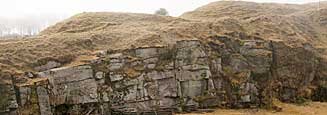 |
Enthusiasm for war? The popular view is that Britons embraced the war with enthusiasm but the truth is more complicated and very different | more soon |
 |
| Home Office Schemes The Home Office Scheme was set up in August 1916 to deal with the 'problem' of thousands of COs clogging up the prison system. | more |
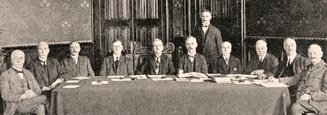 |
White Poppies for Peace The white poppy originated in 1934 symbolises the rejection of war; it embodies values that reject the killing of fellow human beings for any reason, it calls for a commitment to work for peace without violence. | more |
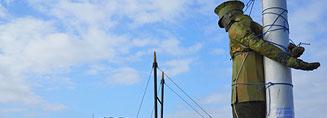 |
We will know them A radio play by Gordon McKerrow. A compeling story of a WW1 pacifist as he confronts call up and the reaction of people around him. | more |
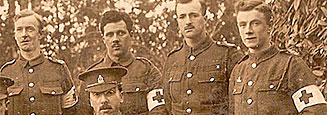 |
| New Zealand 170 of the 2600 conscientious objectors were sent overseas in non-combatant roles where they were beaten and abused | more |
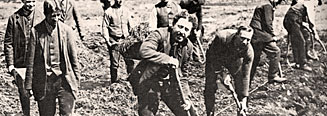 |
RAMC One of the myths about Conscientious Objectors in the First World War is that they were, almost universally, stretcher bearers. | more |
 |
Work of National Importance Supporting the war by other means. Hard not to compromise in a state of total war. | more |
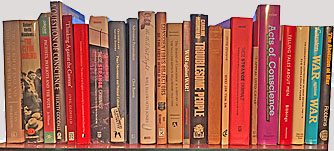 |
| The Tribunal was the paper of the No-Conscription Fellowship and launched in March 1916. Read a new instalment each month. | more | 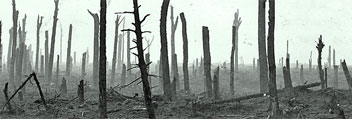 |
A selection of books about and by World War One conscientious objection and related issues. | more |
| Poetry From World War One to today's wars poets have take a compelling view of war. | more |
||
-